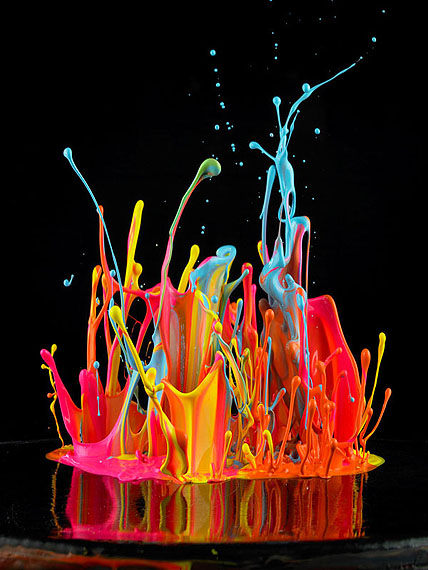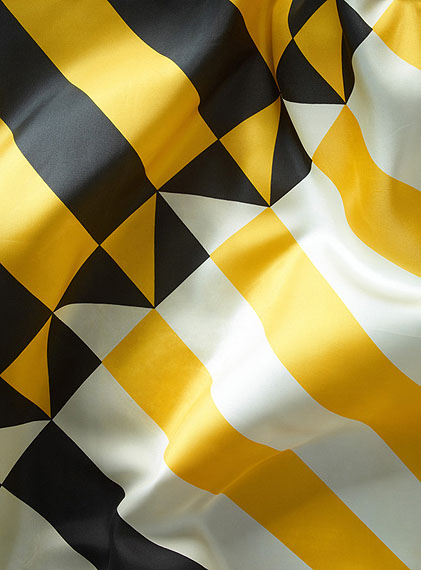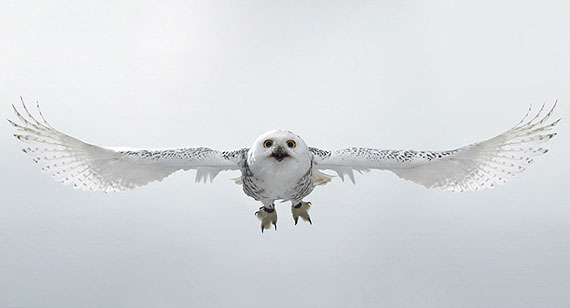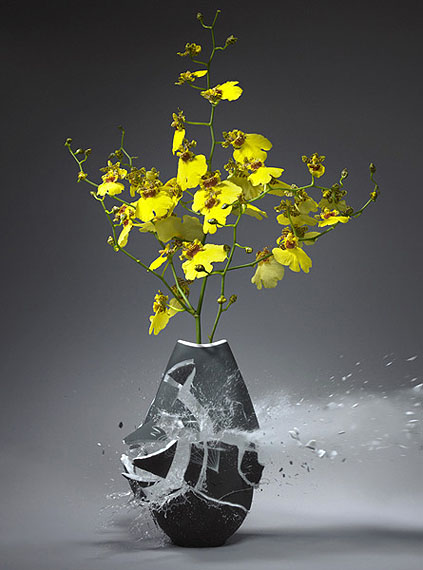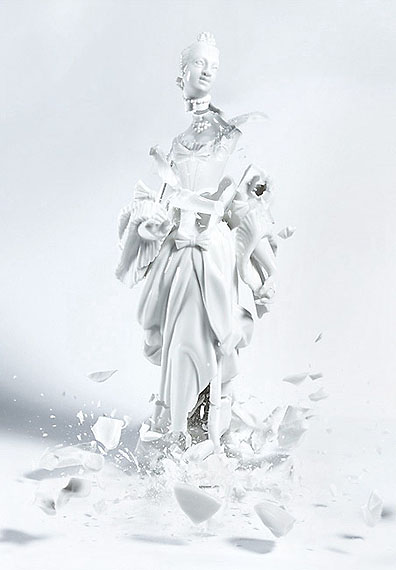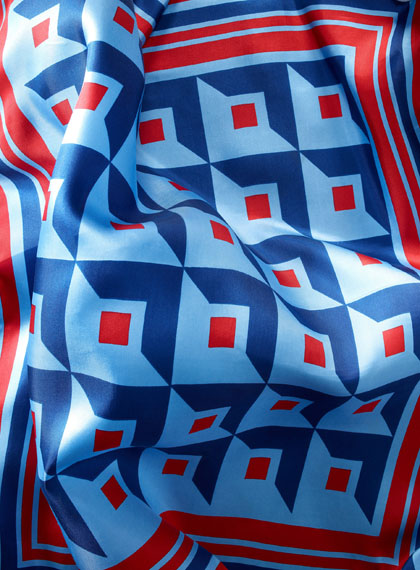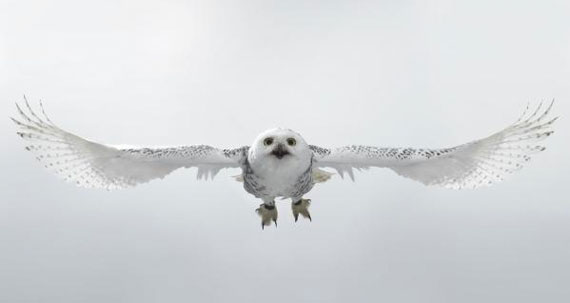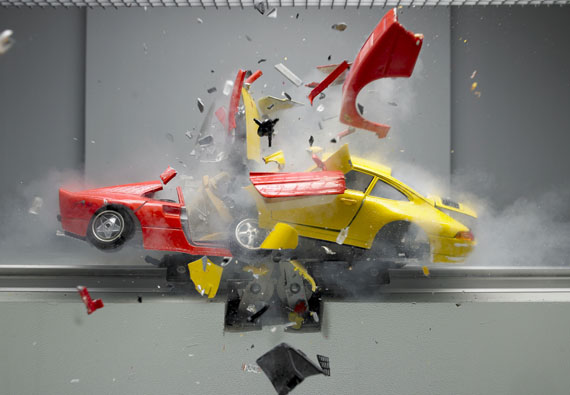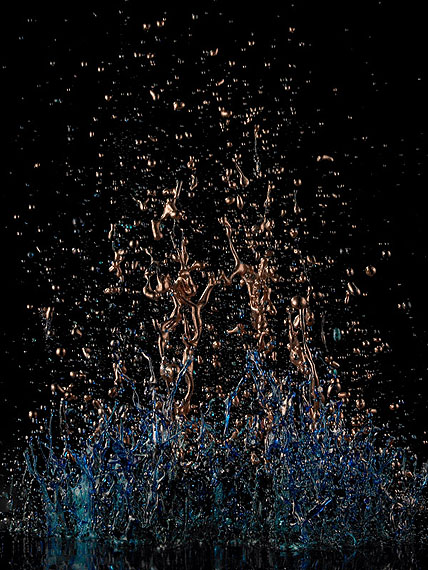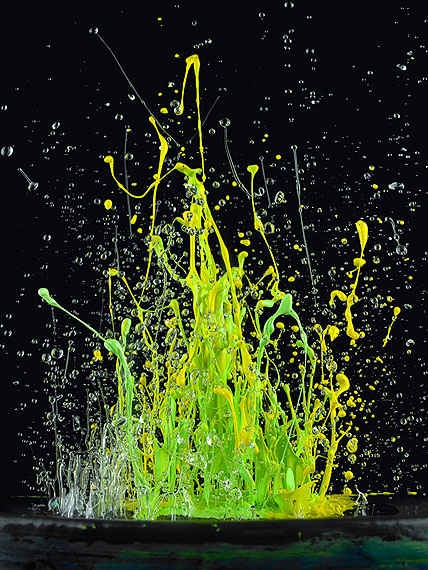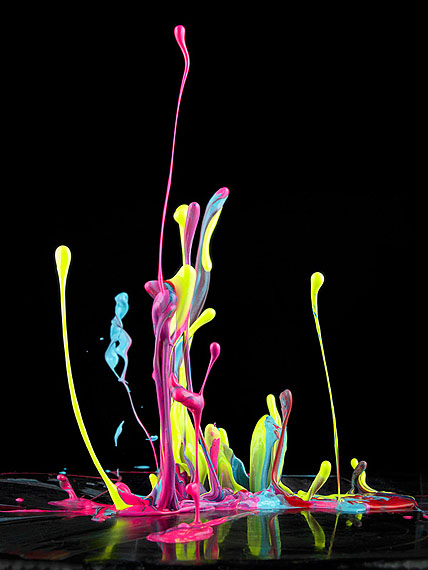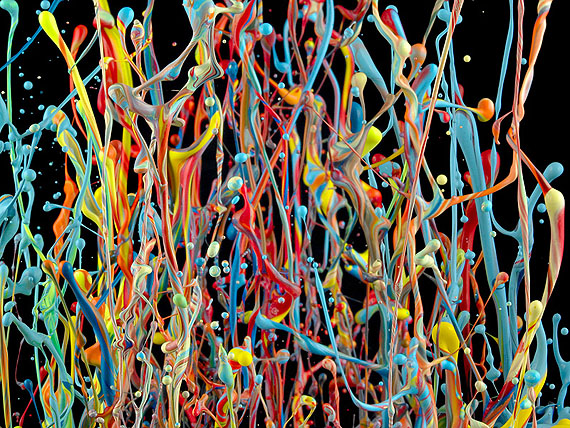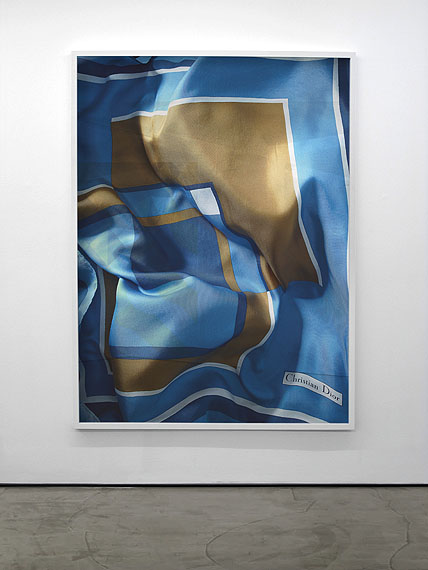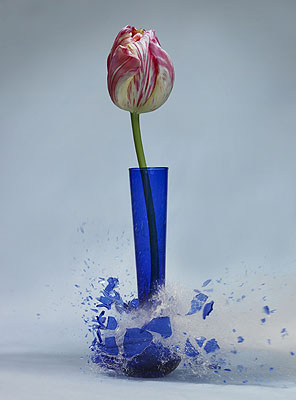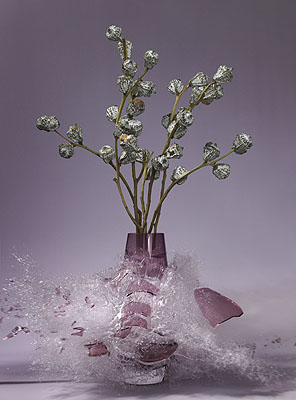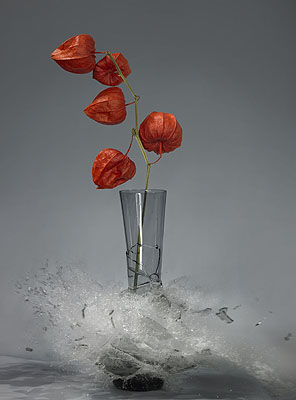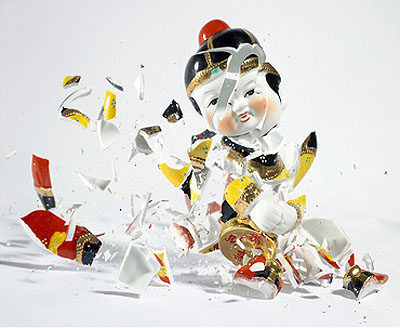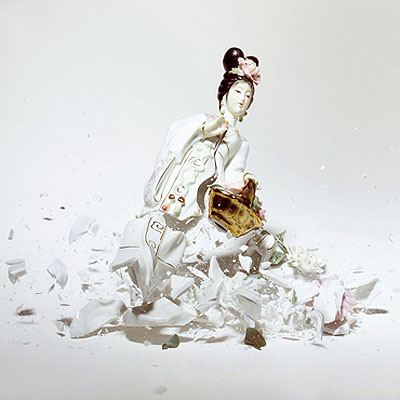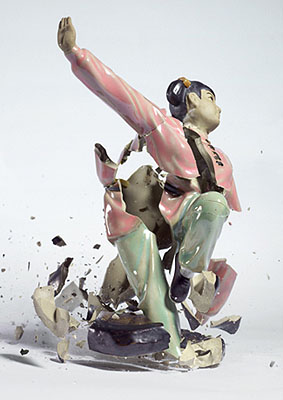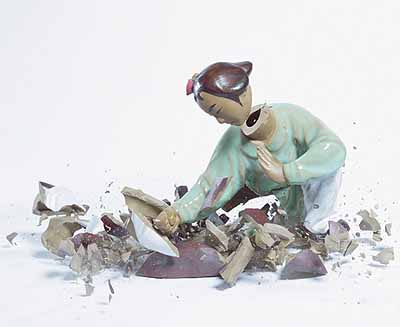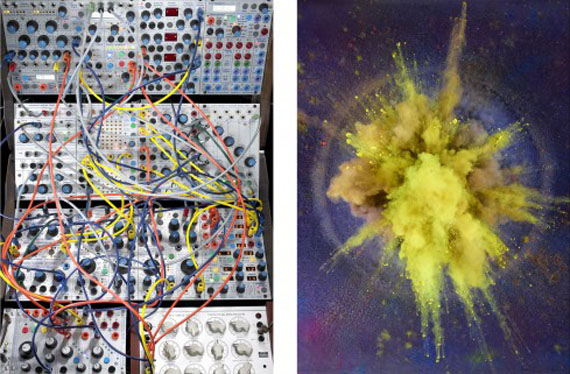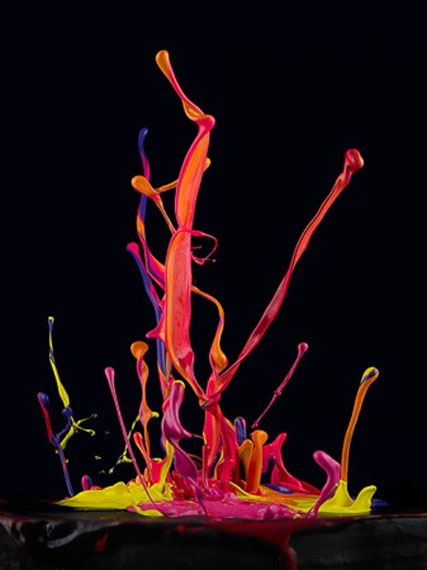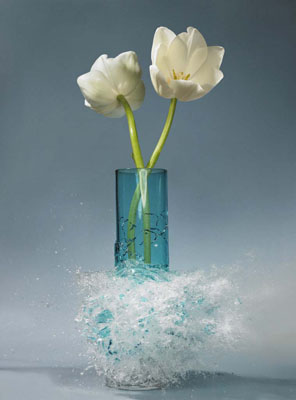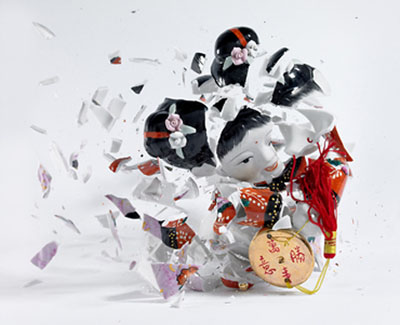Contacts for the work of Martin Klimas |
|---|
News of Martin Klimas |
|---|
Martin KlimasPainting with Sound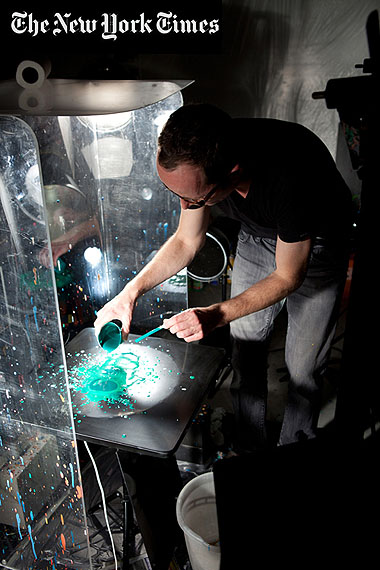 The New York Times Magazine 12/1/12Sonic Sculptures
What does music look like?
Julie Bosman - The New York Times Magazine
Like a 3-D take on Jackson Pollock, the latest work by the artist Martin Klimas begins with splatters of paint in fuchsia, teal and lime green, positioned on a scrim over the diaphragm of a speaker. Then the volume is turned up. For each image, Klimas selects music — typically something dynamic and percussive, like Karlheinz Stockhausen, Miles Davis or K… Martin KlimasCarmina Burana als Farbexplosion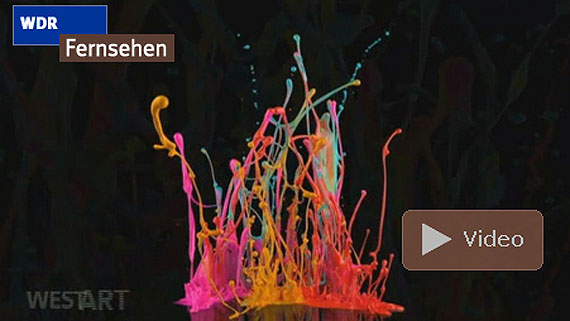 Martin Klimas und seine "Sound Paintings" - WDR 26/6/12Carmina Burana als Farbexplosion
Martin Klimas und seine "Sound Paintings" - WDR 26/6/12
www.wdr.de
Er kommt von der Malerei und vom Grafikdesign. Heute arbeitet der 41-Jährige in seinem Düsseldorfer Atelier als Fotograf: Martin Klimas übersetzt Töne in Bilder. Seine Musikfarbfotos machen den Klang von Musikstücken durch explodierende Malfarben sichtbar. Die Techn… |
Biography of Martin Klimas |
|---|
SOLO EXHIBITIONS 2012 'Movements', Other Gallery Beijing, April 28. - Juin 10. 2011 'Foulard' Cosar HMT, Düsseldorf 2009 Foley Gallery, New York 2008 'Ceramic Explosion', Andy Warhol Museum, Pittsburgh COSAR HMT, Düsseldorf 2007 'Temporary Sculpture' Foley Gallery, New York 2006 Galerie Michael Cosar, Düsseldorf Galeria Suzy Shammah, Milano 2004 Galerie Michael Cosar, Düsseldorf GROUP EXHIBITIONS 2011 'Die Zeit in der Fotografie', Bieler Fototage, Biel,CH 'Flowers - Time, Death and Beauty' FO.KU.S Stadtforum, Innsbruck 'BLUMEN - Zeitgenössische Fotografie', Alfred Ehrhardt Stiftung, Berlin ‘Paper framed behind Glass’, COSAR HMT, Düsseldorf 2010 'Traveling without Moving', Cosar HMT, Düsseldorf 'Beauty - Flowers in Photography', Alexander Ochs, Beijing 2009 'Revisiting Landscape & Still Life', Bafa Foto, Geneva Gallery EY5, 'Klimas - Forsen', Düsseldorf 'Seitenwechsel', Museum Kunst Palast, Düsseldorf 'Decline and Fall', Rena Bransten Gallery, San Francisco 2008 Gallery Howard House, Seattle Galeria Xavier Fiol, Palma de Mallorca 'Querdenker' Darmstätter Tage der Fotografie, Eugen-Bracht-Haus, Darmstadt 'LADA' Baumwollspinnerei, Leipzig 2007 'Luft - poetische Qualitäten und turbulente Höhepunkte', Luftmuseum Amberg 'Die Kunst zu sammeln', Museum Kunst Palast, Düsseldorf 2005 'the nature of skin', Kunsthaus Hamburg 2001 BFF Kongress, Willi-Brandt-Haus, Berlin Reinhard Wolf Preis, Museum für Gestaltung, Hamburg 2000 ‘Parallelwelten', Dortmund ‘NEU', altes Postsortieramt, Düsseldorf ‘Humankind‘, Expo 2000, Hannover 1971 born in Singen, Germany 1992 - 98 Visual Communications and Photography, FH Düsseldorf lives and works in Düsseldorf |
Texts about Martin Klimas |
|---|
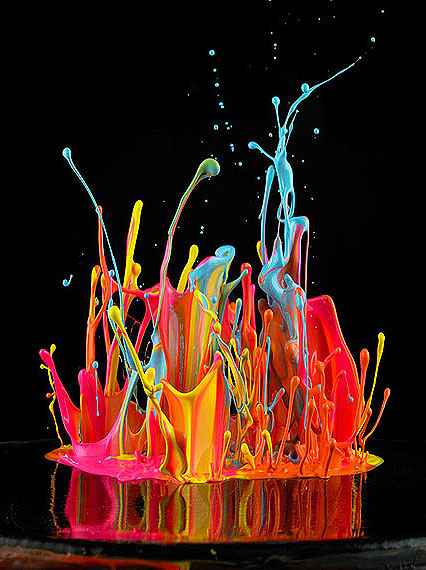 Sonic Sculptures What does music look like? Julie Bosman - The New York Times Magazine Like a 3-D take on Jackson Pollock, the latest work by the artist Martin Klimas begins with splatters of paint in fuchsia, teal and lime green, positioned on a scrim over the diaphragm of a speaker. Then the volume is turned up. For each image, Klimas selects music — typically something dynamic and percussive, like Karlheinz Stockhausen, Miles Davis or K… (more) Sonic Sculptures What does music look like? Julie Bosman - The New York Times Magazine Like a 3-D take on Jackson Pollock, the latest work by the artist Martin Klimas begins with splatters of paint in fuchsia, teal and lime green, positioned on a scrim over the diaphragm of a speaker. Then the volume is turned up. For each image, Klimas selects music — typically something dynamic and percussive, like Karlheinz Stockhausen, Miles Davis or Kraftwerk — and the vibration of the speaker sends the paint aloft in patterns that reveal themselves through the lens of his Hasselblad. For this series, Klimas spent about 1,000 shots to produce the final images from his studio in Düsseldorf, Germany. In addition to the obvious debt owed to abstract expressionism, Klimas says his major influence was Hans Jenny, the father of cymatics, the study of wave phenomena. Ich sehe was, was du nicht hörst. Ein herkömmlicher Lautsprecher mit trichterförmiger Membran, darüber ein bespannter Keilrahmen mit Folie. Klimas trägt die Farben auf, dann zieht er sich aus dem Aufnahmeset zurück, dreht den Lautstärkeregler hoch, und überlässt die Entstehung des Bildes ganz der Musik selbst. Seine aktuelle Serie “Sonic Sculptures” ist ein synästhetisches Zusammenspiel aus Klang, Form und Farbe. Dabei gibt Klimas sich mit einer rein assoziativen Darstellung von Klängen nicht zufrieden, und hat sich eine Maschine gebaut, die Schallwellen in Bilder verwandelt. Bei seiner Musikauswahl setzt er sich keine Grenzen durch Epochen oder Stile und zeigt so unterschiedliche Titel wie “Transistor” von Kraftwerk und Carl Orffs “Carmina Burana”. Charlotte Roos 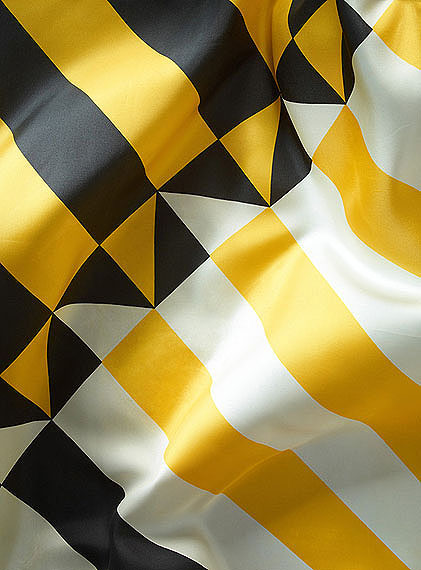 Foulard The latest photo series depicts silk scarves from the 1950s through the 90s as they flutter quickly to the ground. Oddly undecided whether they are two- or three-dimensional, whether they are pictures or art objects, these scarves are an identity crisis in its visible, physical form. Their styles reference the artistic movements of their times. Under Klimas’s direction, they cite abstract expressionism, op and pop art, and call to mind artists such as Rothko, Vasa… (more) Foulard The latest photo series depicts silk scarves from the 1950s through the 90s as they flutter quickly to the ground. Oddly undecided whether they are two- or three-dimensional, whether they are pictures or art objects, these scarves are an identity crisis in its visible, physical form. Their styles reference the artistic movements of their times. Under Klimas’s direction, they cite abstract expressionism, op and pop art, and call to mind artists such as Rothko, Vasarely and Lichtenstein. With these works, Klimas traces the path from fashion accessory back to picture. In the places where he pauses, brilliant color spaces meet minimalistic geometric patterns and unfold a startlingly strong-willed visual power. Foulard Die jüngste Fotoserie zeigt Seidentücher aus den 1950er- 90er Jahren in einer schnellen fallenden Bewegung. Seltsam unentschieden zwischen Zwei- und Dreidimensionalität, zwischen Bild und Objekt, sind diese Tücher formgewordene Identitätskrise. Stilistisch verweisen sie auf künstlerische Strömungen ihrer Zeit, und von Klimas in Szene gesetzt, zitieren sie den Abstrakten Expressionismus, die Op- und Pop Art und lassen an Künstler wie Rothko, Vaserely oder Lichtenstein denken. Klimas verfolgt bei dieser Arbeit den Weg vom modischen Accessoire zurück zum Bild. Dort, wo er innehält, treffen leuchtende Farbräume auf minimalistische geometrische Muster und entfalten eine überraschend eigensinnige visuelle Kraft. |
